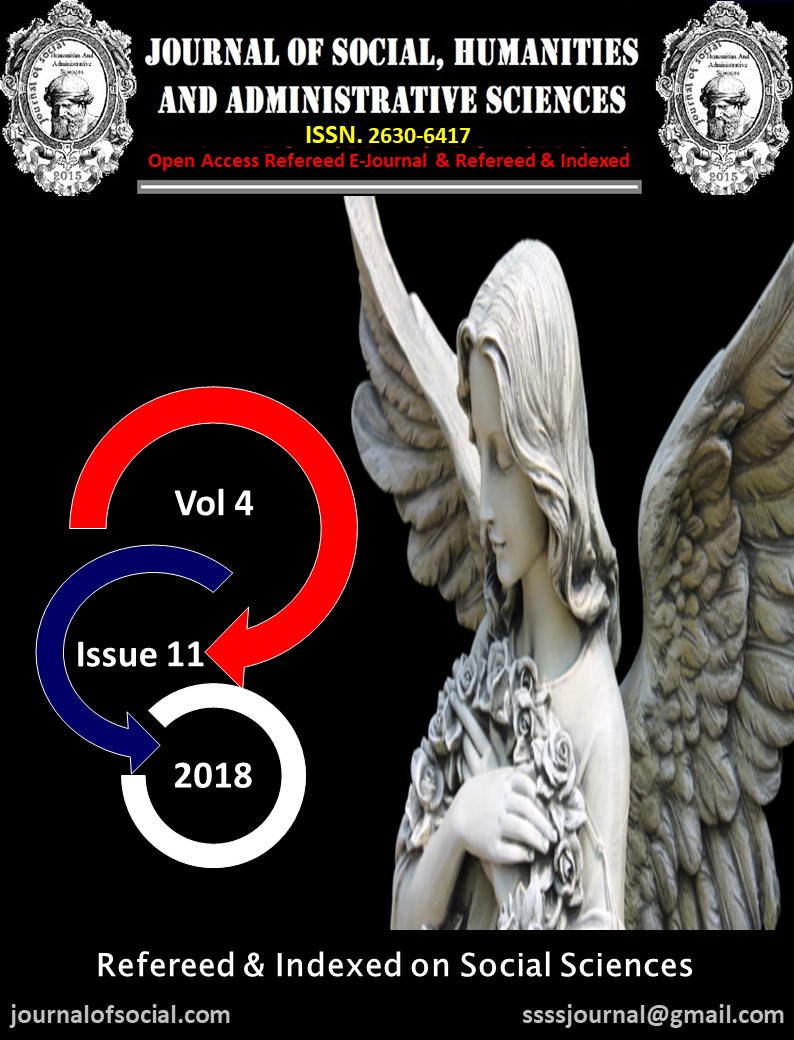Author :
Abstract
Türkiye’de 16 Nisan 2017 tarihindeki referandumla kabul edilen son Anayasa Değişikliğinin, TBMM’ni ortadan kaldıracağı veya en azından demokratik sistem içindeki güç ve yetkilerini bir hayli azaltarak etkisizleştireceği ve adeta sembolik bir konuma düşüreceği yönünde pek çok manipülatif iddia ileri sürülmüştür. 9 Temmuz 2018’de Cumhurbaşkanlığı Sistemine geçişle birlikte, Türkiye’de parlamentonun konumunda bir değişimin yaşanıp yaşanmadığı ve yaşandıysa, bu değişimin TBMM’nin lehine olup olmadığı konusunun açığa çıkarılması, yeni hükümet sistemini doğru anlamak ve uygulamak açısından büyük önem taşımaktadır. Yeni hükümet sisteminde Meclis’in, başlıca iki yasama fonksiyonu olan kanun yapma ve hükümeti denetleme konusunda etkisiz bir konuma düşürülmediğini öncelikle belirtmek gerekir. Bu çalışma kapsamında ise, TBMM’nin, en temel bu ve diğer fonksiyonlarını gerçekleştirme noktasında, eskisine göre daha güçlü ve özerk bir anayasal statüye kavuşturulduğuna ilişkin yaklaşımların hukuki analizi yapılacaktır. Cumhurbaşkanlığı Sistemi, önceki dönemin yapısal ve fonksiyonel yönden iç içe geçmiş yasama-yürütme görüntüsünden, daha sağlam ve gerçekçi bir kuvvetler ayrılığına zemin hazırlamaktadır. Böylesi bir kuvvetler ayrılığı ilkesinin işletilmesiyle de, hükümetin TBMM karşısında hesap verebilirliği artırılmış olacaktır. 2017 Anayasal düzenlemesi, TBMM’ni yürütme karşısında eskisine göre daha güçlü, bağımsız ve denetleyici bir konuma getirmeyi hedeflemektedir. Dolayısıyla bu anayasal düzenlemenin, TBMM’ni ortadan kaldırdığı veya Meclis’in güç ve yetkilerini minimize ettiği yönündeki söylemlerin, en azından anayasal ve hukuki bir temelinin bulunmadığını ifade etmek gerekir. Yeni hükümet sisteminin hedefleri arasında olan daha güçlü, bağımsız ve denetleyici bir TBMM’nin siyaseten ve fiilen gerçekleşip gerçekleşmediğini ise, uygulamalar bu süreç içerisinde gösterecektir.
Keywords
Abstract
The latest Constitution Amendment adopted by referendum on 16 April 2017 Turkey, which eliminates the Turkish Grand National Assembly (TGNA-TBMM) or at least to neutralize reducing a great deal of power and authority within the democratic system, and claims many manipulative virtually case will affect a symbolic position has been suggested. With the transition to the Presidential System in 9 July 2018, the position of the parliament in Turkey where is experiencing a change and had happened, to expose the issue of whether it is in favor of this change of Parliament, is of great importance in terms of understanding toward the new government and implementing systems. It is important to note in the new government system that the Assembly has not been reduced to an ineffective position in the two main legislative functions: law enforcement and government control. Within the scope of this study, the legal analysis of the approaches that the TGNA has been given a more powerful and autonomous constitutional status in terms of performing these basic and other functions will be done. The Presidential System provides a basis for a more robust and realistic separation of powers from the previous legislative-executive image of the previous period. With the operation of such a separation of powers principle, the government's accountability against the Parliament will be increased. The 2017 constitutional arrangement aims to bring the TGNA to a more powerful, independent and supervisory position than it was before. Therefore, it should be noted that the discourses that this constitutional regulation abolished the TGNA or minimized the powers and powers of the Assembly have at least a constitutional and legal basis. The implementation of a more powerful, independent and supervising Parliament, which is among the objectives of the new government system, is politically and effectively realized.
Keywords
- ALJAZEERA. (2018). “143 Bin Kişiyi 1 Milletvekili Temsil Ediyor”, http://www.
- ALJAZEERA. (2018). “143 Bin Kişiyi 1 Milletvekili Temsil Ediyor”, http://www.aljazeera.com.tr/haber/turkiyede-143-bin-kisiyi-1-milletvekili-temsil-edi yor, Erişim Tarihi:ALKAN, H. (2017). “Cumhurbaşkanlığı Sisteminde Yasama Denetimi”, Yeni Türkiye Dergisi(Cumhurbaşkanlığı Hükümet Sistemi Özel Sayısı), Yıl: 23, Sayı: 94, (Mart-Nisan 2017), ss. 471-476.ALTUN, F. (2018). “Red Cephesinin Yeni Sanrıları”, Retrieved at February 20, 2017 fromhttp://www.sabah.com.tr/yazarlar/ fahrettinaltun/ret-cephesinin-yeni-sanrilari. Erişim Tarihi:BİLİR, F. (2017). Hükümet Sistemleri ve Başkanlık Sistemi, Adalet Yayınları, Ankara, 125 s. BOZLAĞAN, R. (2016). Türk Tipi Başkanlık, Hayat Yayınları, İstanbul, 157 s.
- CHP. (2018). “Neden Hayır”, https://www.chp.org.tr/ Public/0/Other/ NEDEN%20 HAYIR.pdf. Erişim Tarihi: 30.04.2018.
- ERDOĞAN, R. T. (2017).“200 Yıllık Arayışın Ürünü: Cumhurbaşkanlığı Hükümet Sistemi”, YeniTürkiye Dergisi (Cumhurbaşkanlığı Hükümet Sistemi Özel Sayısı), Yıl: 23, Sayı: 94, (Mart-Nisan 2017), ss. 9-11.
- EREN, A. (2018). “Başkanlık Sistemi 1-Genel Değerlendirme”, http:// www.kanuniesasi.com/index.php/kose-yazilari/37-baskanlik-sistemi-1-genel-degerlendirme, Erişim Tarihi: 25.04.2018.
- FENDOĞLU, H. T. (2017). “Cumhurbaşkanlığı Hükümet Sistemi”, Yeni Türkiye Dergisi(Cumhurbaşkanlığı Hükümet Sistemi Özel Sayısı), Yıl: 23, Sayı: 94, (Mart-Nisan 2017), ss. 90-109.GÖZLER, K. (2017). Elveda Anayasa, (16 Nisan 2017’de Oylayacağımız Anayasa Değişikliği Hakkında Eleştiriler), Ekin Yayınları, Bursa, 191 s.
- GÖZLER, K. (2018). “‘Fesih’ ve ‘Seçimlerin Yenilenmesi’ Farklı Kavramlar mı?”, http://www.anayasa.gen.tr/fesih-yenileme.html. Erişim Tarihi: 28.04.2018.
- GÜL, C. 2017. Karşılaştırılmalı Hükümet Sistemlerinde Yürütme, Yetkin Yayınları, Ankara, 411 s.KARATEPE, Ş. / ALKAN, H. / ATAR, Y. / BİNGÖL, Y. / DURGUN, G. B. (2017). Sorularla Cumhurbaşkanlığı Hükümet Sistemi, Memur-Sen Yayınları, Ankara, 138 s.
- KESER, H. (2017). “Türk Tipi Başkanlık Sistemi Üzerine”, Yeni Türkiye Dergisi (Cumhurbaşkanlığı Hükümet Sistemi Özel Sayısı), Yıl: 23, Sayı: 94, (Mart-Nisan 2017), ss. 433-438.
- KÜÇÜK, A. (2018). “Cumhurbaşkanlığı Sistemine Öcülerle Karşı Çıkmak”, http://www.star.com.tr/acik-gorus/cumhurbaskanligi-sistemine-oculerle-karsi-cikmak-haber-1168354/.
- ÖZBUDUN, E. (2017). Türk Anayasa Hukuku, 2017 Anayasa Değişikliklerine Göre Gözden Geçirilmiş 17. Basım, Yetkin Yayınları, Ankara, 449 s.
- SÖYLER, Y. (2018). Yeni Başkanlık Sisteminde Cumhurbaşkanlığı Kararnamesi, Seçkin Yayınları, Ankara, 271 s.
- TEZKAN, M. (2018). “Bak Bu Olmadı Burhan Hoca”, http://www. milliyet.com.tr/ yazarlar/ mehmet-tezkan/bak-bu-olmadi-burhan-hoca-2402056/. Erişim Tarihi: 22.04.2018.
- TURHAN, M. (1989). Hükümet Sistemleri ve 1982 Anayasası, Dicle Üniversitesi Hukuk Fakültesi Yayınları, Diyarbakır, 211 s.
- UÇUM, M. (2018). “Cumhuriyeti Halka Açan Doğrudan Millet Hükümeti”, Açık Görüş-Star, Erişim Tarihi: 20.04.2018.
